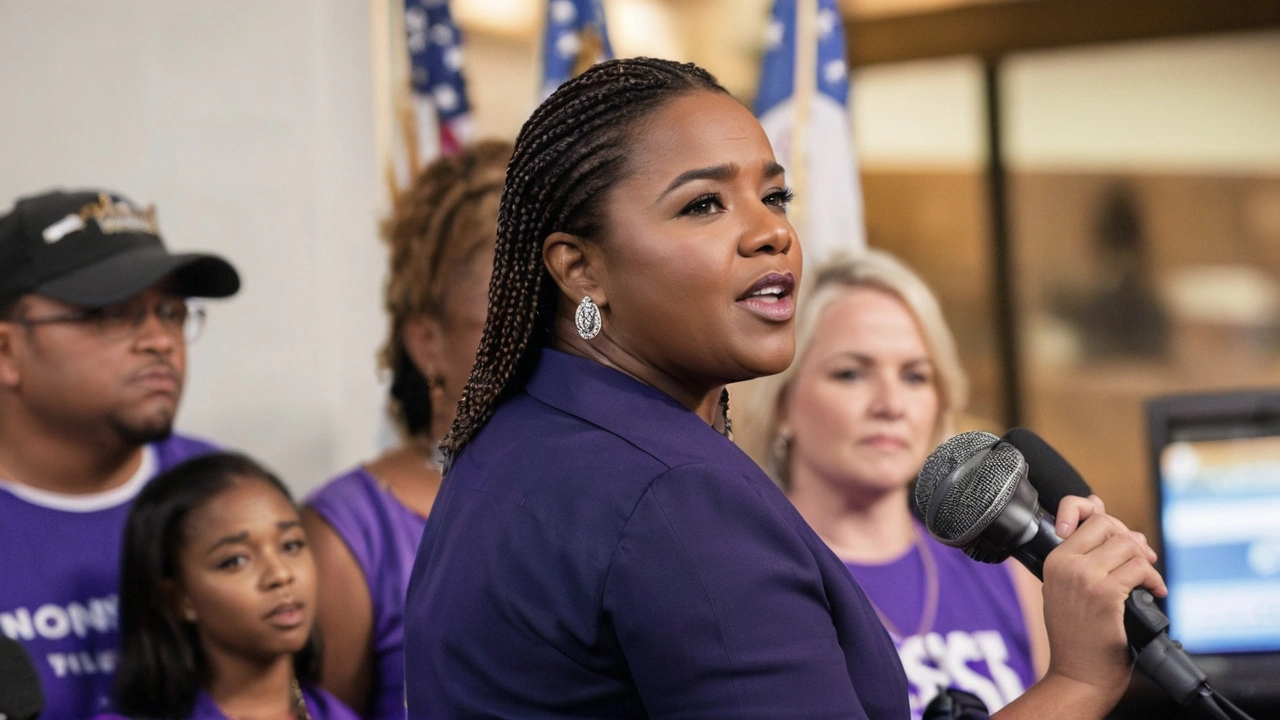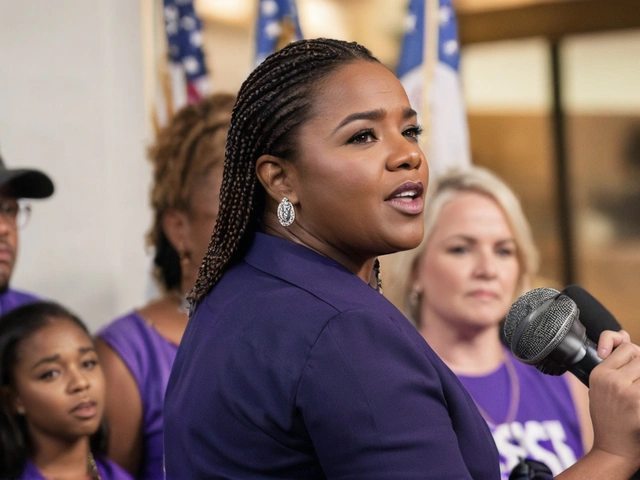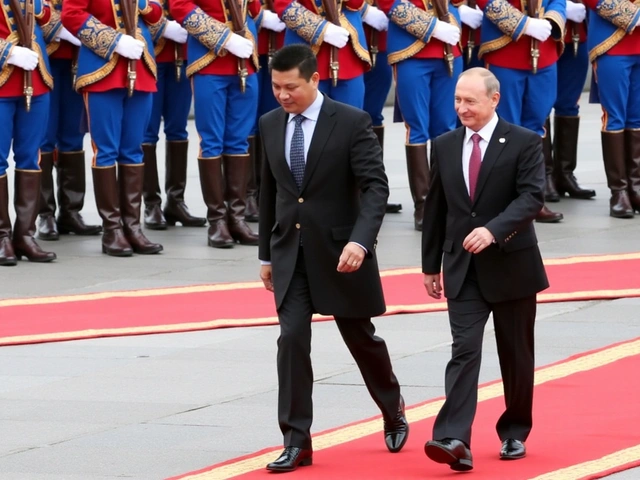
Cori Bush and Josh Hawley: Contrasting Political Visions from Missouri
Cori Bush and Josh Hawley: Divergent Political Paths in Missouri
Missouri has become a fascinating case study in American politics, thanks to two prominent figures representing starkly different ideological spectrums: U.S. Senator Josh Hawley and U.S. Representative Cori Bush. Both have risen to national prominence, reflecting the deeply divided political landscape of the United States. While Hawley, a Republican from Columbia, Missouri, has championed conservative values, Bush, a Democrat from St. Louis, has been a vocal advocate for progressive causes. This article delves into their contrasting journeys, exploring what their careers say about the evolving political dynamics within their respective parties.
The Rise of Josh Hawley
Josh Hawley's political ascent began in earnest when he was elected as Missouri's Attorney General in 2016. He quickly made a name for himself by taking strong stances on key conservative issues, notably immigration and judicial nominees. In 2019, he ascended to the U.S. Senate, where he became even more of a national figure, often making headlines for his vocal opposition to policies he perceives as detrimental to American values.
Hawley's profile surged dramatically during and after the Capitol riot on January 6, 2021. He was one of the few senators who objected to certifying President Joe Biden's electoral victory, a move that has cemented his reputation among staunch conservatives while drawing significant criticism from the left and even some members of his own party. Hawley’s actions on that day and his continued rhetoric have made him a polarizing figure but have also solidified his standing as a key player in the Republican party’s future.
Cori Bush's Journey to Congress
Unlike Hawley, Cori Bush's rise in politics did not follow the traditional path. A registered nurse and pastor, Bush first became involved in politics through her activism, especially in the wake of the 2014 Ferguson protests, which were sparked by the police shooting of Michael Brown. Her grassroots approach resonated with many in her district, allowing her to defeat long-time incumbent Lacy Clay in the 2020 Democratic primary for Missouri’s 1st Congressional District. Her victory was a significant upset, signaling a shift within the Democratic Party towards more progressive candidates.
Since her election, Bush has been a relentless advocate for issues such as criminal justice reform, racial equity, and healthcare access. She has also been at the forefront of movements like defunding the police, often facing intense opposition but remaining undeterred in her mission to bring about systemic change. Her outspoken nature and unwavering commitment to progressive values have made her a beloved figure among activists and a contentious one among conservatives.
Divergent Ideologies
The stark differences between Hawley and Bush's political philosophies are reflective of broader trends within their respective parties. Hawley represents the conservative wing of the Republican Party, deeply rooted in traditional values and often resistant to rapid societal changes. His rhetoric often includes a defense of what he views as the foundational principles of America, and he is seen as a protector of conservative ideals in an increasingly polarized political environment.
In contrast, Bush embodies the progressive wing of the Democratic Party, advocating for comprehensive changes to address systemic inequalities. Her policy positions on issues such as healthcare, racial justice, and criminal justice reform highlight her commitment to transforming the existing structures that she believes perpetuate injustice. Bush’s approach is more revolutionary, envisioning a future where significant, foundational changes pave the way for a more equitable society.
Impact and Influence
Both Hawley and Bush wield significant influence within their parties, albeit in different ways. Hawley's unwavering conservative stance has made him a figurehead for Republicans who seek to uphold traditional values against what they see as the encroachment of progressive policies. His role in the events of January 6th, though controversial, has only solidified his status as a key player in the GOP's future.
Similarly, Bush’s progressive advocacy has made her a pivotal voice within the Democratic Party, particularly among younger and more diverse voters. Her grassroots background and commitment to social justice resonate deeply with those who seek substantial reforms rather than incremental changes. Her influence is evident in the way she has brought conversations about issues like systemic racism and defunding the police to the forefront of the national political discourse.
Future Trajectories
As Hawley and Bush continue to navigate their political careers, their paths will likely continue to diverge. Hawley’s future might include higher aspirations, potentially eyeing a Presidential run, where his strong conservative credentials could play well with the GOP base. His continued opposition to what he and his followers view as 'liberal overreach' will likely keep him in the spotlight for years to come.
On the other hand, Bush’s focus is likely to remain on grassroots activism and pushing for reforms within Congress. Her dedication to progressive causes will continue to shape her legislative priorities and ensure that she remains a prominent voice for change. As the Democratic Party evolves, Bush’s influence could grow, especially as the party navigates the balance between its moderate and progressive wings.
Conclusion
The political trajectories of Josh Hawley and Cori Bush represent the competing visions for America’s future. Their careers, rooted in the heartland of Missouri, offer a microcosm of the broader ideological battles being waged across the United States. While their paths may be fundamentally different, both are undeniably committed to shaping the future of their parties and, by extension, the nation. Their stories are a testament to the dynamic and often contentious nature of American politics, where divergent paths can lead to equally influential roles in shaping the country’s direction.






